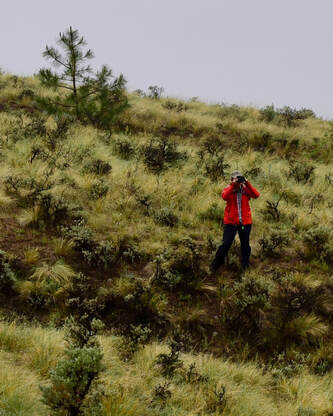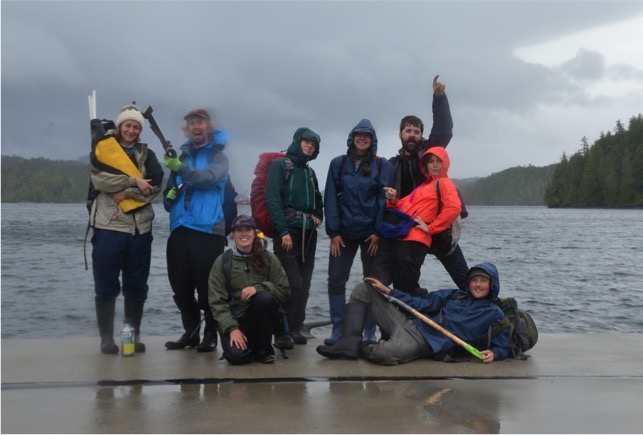Letter to Prospective Students

Most years I expect to have room in my lab for 1 - 2 new graduate students. For 2024 I am especially interested in inquiries from MSc or PhD students interested in experimental community ecology, clever analyses of landscape change through the lens of eco-cultural legacies, or analyses of large community science datasets. I enjoy working on a variety of topics in community ecology and conservation biology (including restoration), and am very interested in working with students who both broaden and deepen my research. I don't have an organismal bias, though I seem to most often work with plants, micro-arthropods (small insects and mites), and birds. This means that incoming students can work on research questions that I am pursuing, or on their own, related topics. Much of the work in my lab involves experiments, observational work, or synthesizing the results from a number of studies. As a result, good quantitative skills are important. Past research experience is a plus but not necessary: an analytical mind, hard-working and positive personality, and boundless curiousity are the things I look for in a student. Grad school is a lot of work, but a lot of fun, too. Science is really limited by good questions: many brains working on many excellent questions is what moves ecological science forward, and so diversity in backgrounds, approaches, and experiences is absolutely key to our collective success. Victoria is a fantastic place to live and study, with easy access to a fun urban environment, excellent local food, and of course the mountains and ocean. If you are interested in working on a graduate degree with me, please get in touch well in advance of the application deadlines (email is usually best to begin, and you can find out more about deadlines from the School of Environmental Studies site). If you are sending an email, it is essential to include a CV, list of grades (unofficial transcript is a good starting point), and a description of your research interests: what questions and hypotheses are you interested in and why are they important, why do you want to do an MSc/PhD, what are your career goals, and what research experience do you have and what did you learn from it? Please note that we receive many more inquiries and applications than we can accept.
Funding is an issue that everyone thinking of grad school should be aware of, and it is especially important for prospective students to explore all of their funding options. Here is a broad list of options. NSERC is the first place to look for funding in Canada. The Pacific Institute for Climate Solutions (PICS) also has a few awards that may work for research in my lab. There are a number of incoming student awards that may also be available to some students (see here). Teaching assistantships are another potential source of support. Each student should look broadly for funding opportunities for graduate work, and I am happy to help with the search. At the moment it is difficult to bring international students to the lab unless they are bringing their own funding.
The deadlines for applying are as follows:
• UVic School of Environmental Studies: January 15 for admittance the following September, December deadline if you are an international student
• NSERC Grad student deadline: Usually December (This is NSERC's deadline; *** if you are applying through your undergraduate university, this deadline may be earlier- be careful! ***)
• In general, if you hope to work with a particular supervisor, it is good to get in touch well in advance of the application deadline, so that person can help you through the process. Contact me here.
Funding is an issue that everyone thinking of grad school should be aware of, and it is especially important for prospective students to explore all of their funding options. Here is a broad list of options. NSERC is the first place to look for funding in Canada. The Pacific Institute for Climate Solutions (PICS) also has a few awards that may work for research in my lab. There are a number of incoming student awards that may also be available to some students (see here). Teaching assistantships are another potential source of support. Each student should look broadly for funding opportunities for graduate work, and I am happy to help with the search. At the moment it is difficult to bring international students to the lab unless they are bringing their own funding.
The deadlines for applying are as follows:
• UVic School of Environmental Studies: January 15 for admittance the following September, December deadline if you are an international student
• NSERC Grad student deadline: Usually December (This is NSERC's deadline; *** if you are applying through your undergraduate university, this deadline may be earlier- be careful! ***)
• In general, if you hope to work with a particular supervisor, it is good to get in touch well in advance of the application deadline, so that person can help you through the process. Contact me here.
A wet and not entirely untypical field day on BC's Central Coast. Field work is awesome! Pic by Andrew Trant.

